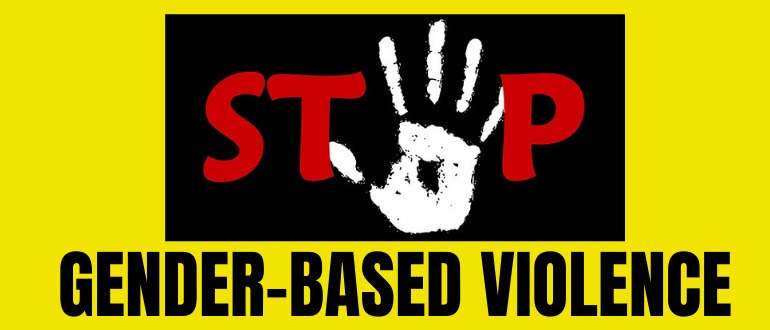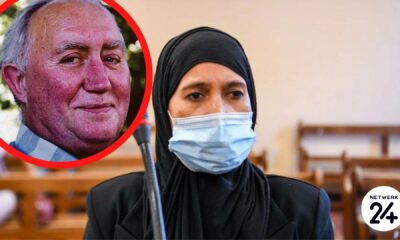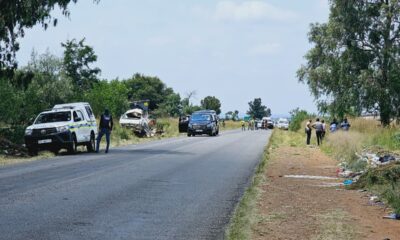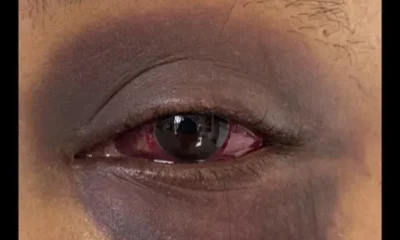News
“Left Bleeding and Ignored”: A Belhar GBV Survivor’s Story Exposes a Broken System

In the early hours of a spring morning in 2019, a woman arrived at Belhar Police Station in Cape Town, bloodied, bruised, and desperate for help. She had just survived a horrifying attack: she was raped and nearly killed by her estranged husband during a drug-fuelled rage. But the worst was not over.
For more than two agonising hours, she sat visibly battered in the waiting area, ignored.
No questions. No urgency. No basic humanity.
Now, nearly six years later, her trauma has returned to the spotlight through a powerful judgment handed down in the Western Cape High Court, where her attacker’s appeal against a life sentence was dismissed. This time, the court was not just handing out justice; it was issuing a damning indictment of the police, the community, and the systemic failures that plague South Africa’s fight against gender-based violence.
More Than Just a Court Case
Judge Mas-Udah Pangarker, who presided over the appeal, did not mince words. The court, she said, felt compelled to “step beyond the traditional role” due to the sheer horror of the man’s actions and the utter failure of police when help was so desperately needed.
Her ruling was not just about keeping the perpetrator behind bars. It was about holding institutions accountable. She ordered Belhar’s station commander to launch a formal investigation into why the survivor received no help and submit a full report to the Director of Public Prosecutions (DPP). That report must then lead to mandatory training for all Belhar SAPS personnel on how to properly respond to GBV and sexual offences.
If necessary, the Commission for Gender Equality would be brought in to assist.
But the court did not stop there. Judge Pangarker also expressed concern about the lack of counselling provided to the survivor, highlighting a deeply familiar truth for many in South Africa: victims are too often forgotten once their cases leave the headlines.
She Wanted Her Story to Be Heard
Perhaps the most humanising moment of the judgment came when the court revealed that the survivor herself had asked for her story to be acknowledged, not for sympathy, but in the hope that her ordeal might help others. In a system where many survivors are silenced or overlooked, her quiet bravery speaks volumes.
Her children, now in the care of relatives, are growing up without either parent. She, like many in our broken society, has faced ongoing struggles with addiction, a harrowing reminder that justice on paper does not always translate into real-world healing.
A Community That Turned Away
As haunting as the police’s neglect was, Judge Pangarker also condemned the neighbours who ignored the woman’s plea for help on the night of her attack. One neighbour reportedly dismissed the incident as a “domestic squabble” and refused to get involved.
This moment cuts deeply into South Africa’s complex social fabric. In communities like Belhar, already battered by crime, drugs, and fear, choosing not to intervene is not always about apathy. Sometimes it is about survival.
Still, the judge warned: such indifference, however human, only fuels the GBV crisis.
This Cannot Just Be a Footnote
Civil society group Ilitha Labantu responded strongly to the court’s ruling, calling it both damning and necessary. Spokesperson Siyabulela Monakali said the incident at Belhar SAPS represents more than a procedural failure; it reflects a deep rot within parts of the criminal justice system.
“The survivor was doubly victimised,” he said, “first by her attacker, then by the very system meant to protect her.”
Ilitha Labantu has trained nearly 100 SAPS stations across the Western Cape in GBV response protocols, voluntarily, at their own cost. Yet Monakali insists that training alone will not fix the issue.
“There needs to be accountability, oversight, and a complete shift in culture,” he said. “When survivors are treated with indifference, it discourages others from coming forward.”
A National Crisis, A Local Wake-Up Call
South Africa’s war against gender-based violence has reached a point where strong court judgments are no longer enough. Survivors need more than conviction stats. They need working systems. They need communities that care. They need police stations that see them not just as cases, but as people.
Belhar’s story is sadly not unique, but maybe, just maybe, this one judgment can be the crack that finally shatters a broken cycle.
Because the next woman should not have to wait two hours, bleeding and alone, to be believed.
Also read: Too Few for the Bench? JSC Shortlists 2025 Judges but Reopens Constitutional Court Applications
Follow Joburg ETC on Facebook, Twitter , TikTok and Instagram
For more News in Johannesburg, visit joburgetc.com
Source: IOL
Featured Image: Graça Machel Trust


























